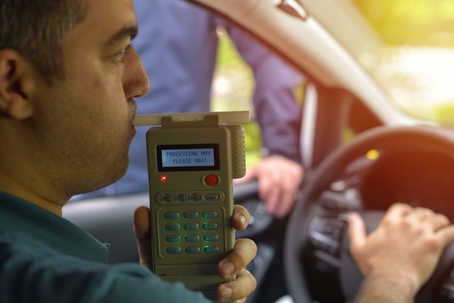DUI breathalyzer tests are designed to capture the level of alcohol in the deep lung tissue, which will, presumably, register an accurate reading of a person’s blood alcohol concentration (BAC). However, if an individual has residual alcohol in their mouth, then the breathalyzer test can yield a falsely high BAC reading.
Mouth alcohol, like the name implies, is alcohol that remains in the mouth. When an individual consumes alcohol, traces of the alcohol remain in the mucosal linings of the mouth for a short period of time. This also occurs when alcohol is regurgitated. Mouth alcohol dissipates fairly quickly, however, and only remains in the mouth for 10 to 15 minutes.
The DUI regulations require certain waiting periods before a law enforcement officer can administer a breathalyzer test. These waiting periods are intended to avoid false readings caused by residual alcohol in the mouth.
In West Virginia, that waiting period is 15 minutes for a preliminary breath test (PBT) and 20 minutes prior to a secondary chemical test (the Intoximeter EC/IR II). During the waiting period, the police officer must constantly observe the individual to ensure that the person has nothing in his or her mouth and does not drink or eat anything. Generally, this also includes gum, mouthwash, tobacco, and other foreign items.
In addition to alcoholic beverages, mouth alcohol can be caused by:
- Mouthwash
- Certain breath sprays
- Chewing tobacco
- Certain medicines (like Nyquil)
- Acid reflux
- Gastroesophageal reflux disease (GERD)
The presence of residual alcohol in the mouth can distort the breathalyzer test results and, under certain circumstances, render the test results inadmissible at trial. Mouth alcohol is a valid defense to a DUI charge in West Virginia.

